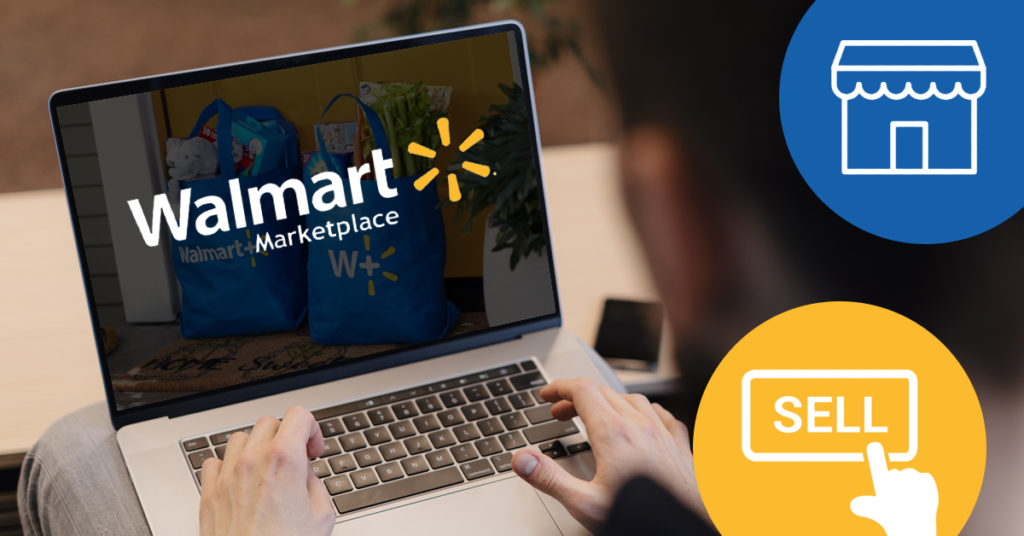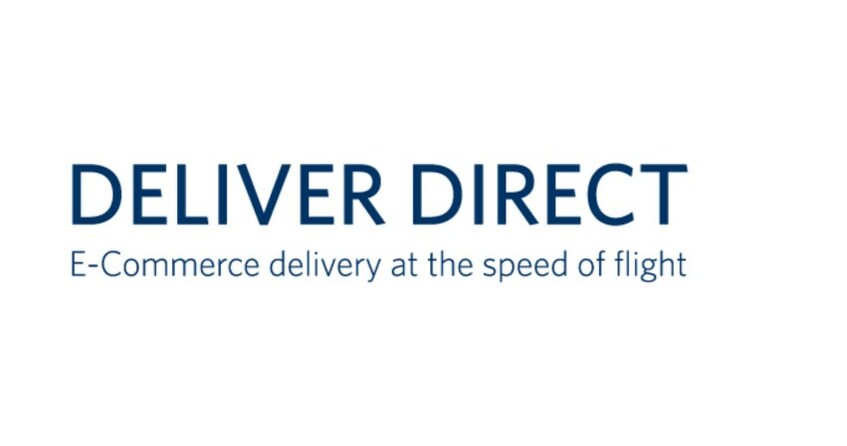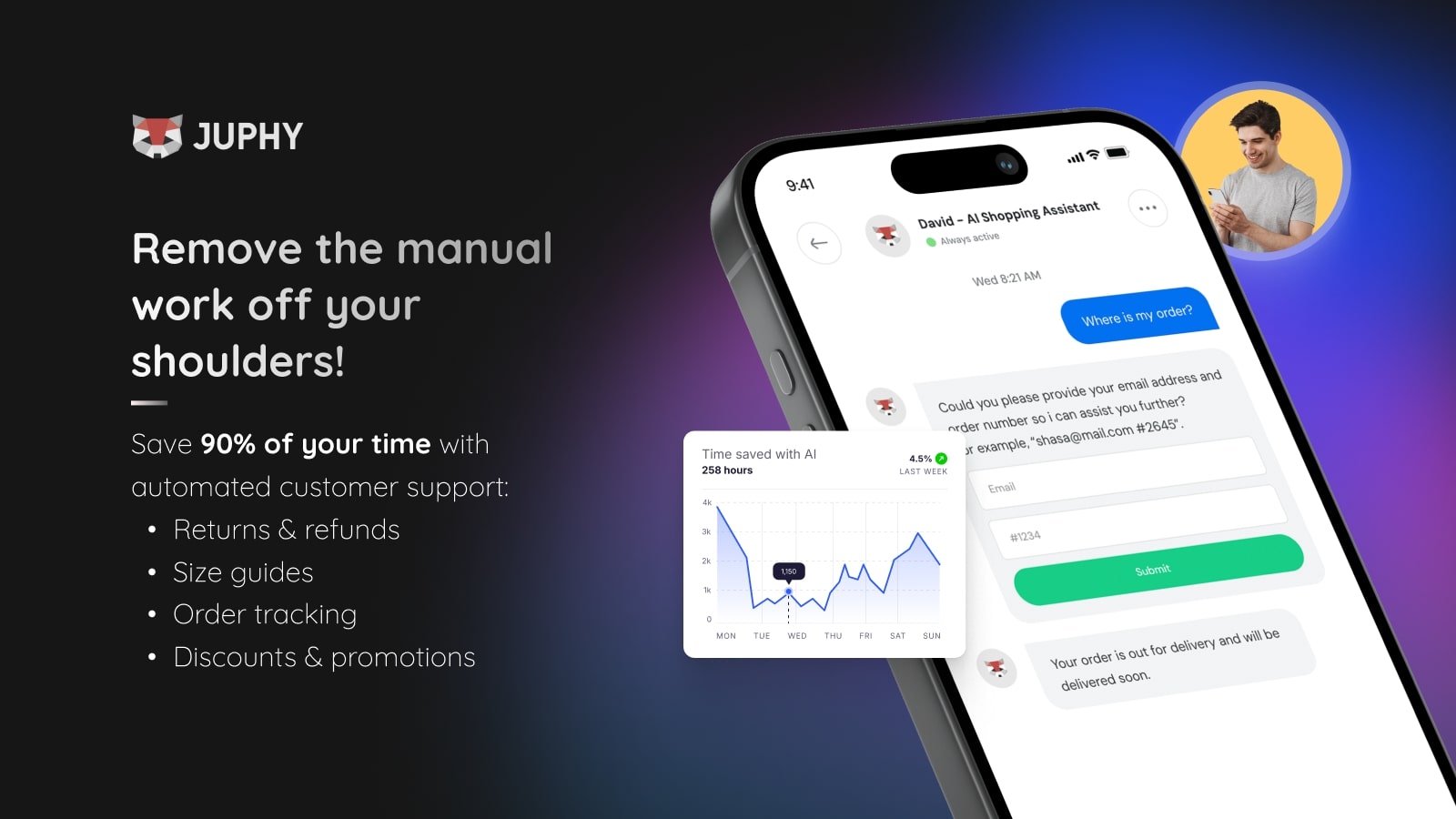Juphy’s Weekly E-Commerce News Express – 05-09 February 2024
Ceyda Duz
Let’s take a look at last week’s e-commerce news and latest trends with IBM’s recent survey about AI and sustainability, a need to redefine growth strategy for consumer product companies, new product updates on the front of Walmart and Yelp, and a new partnership by Delta Cargo and SmartKargo. Don’t miss out on the latest highlights, and keep on reading to stay up to date in e-commerce.

Shaping E-Commerce: AI’s Rise and Sustainability
Innovative technology has integrated itself into our daily lives, from our routines to online shopping habits – it is everywhere. IBM’s recent study investigated the impact of these advancements and consumer perceptions of in-store versus online shopping. Covering AI, VR, virtual assistants, brand expectations, and sustainability, this survey, with its third edition, captures the pulse of consumer preferences across 26 countries with 20,000 participants. The first and surprising finding is that only 9% of consumers express satisfaction with in-store shopping, while e-commerce scores slightly better at 14%. Over half of consumers show interest in using chatbots, virtual assistants, AR, VR, and other AI applications during their shopping journey.

Despite this, 86% of consumers open to AI haven’t yet experienced it during online shopping, showing an untapped potential in its actual impact. That means good news – consumers are open to the AI hype the retail industry experiences despite virtual assistants and chatbots facing challenges in understanding basic queries, which hinders broader adoption. However, generative AI emerges as a promising solution, leveraging real-time data to enhance the shopping experience. Transparency and control over data usage are crucial for consumers, with nearly half seeking insight and control.

The topic of sustainability is another important factor, with 78% considering it when choosing a brand and 61% willing to change shopping habits to reduce environmental impact. Shoppers expect transparent sustainability information from companies emphasizing safe ingredients, natural materials, and recycling practices.
As more people embrace AI in online shopping, sustainability has become a major focus for consumers, changing how e-commerce works.
Redefining Growth Strategies: Consumer Product Companies Adapt to Shifting Pricing Dynamics
The discussion around pricing has intensified in recent months, with a notable emphasis on understanding consumer perspectives. Now, the focus is shifting to another side of the story, impacting both consumers and consumer product companies. Deloitte’s 2024 Consumer Products Industry Outlook indicates that nearly half of these companies no longer view pricing as the sole driver of growth. Instead, only 2% plan to raise prices significantly this year as part of their strategy. This outlook is based on an analysis of the top 100 public consumer product companies and their revenue trends.

Deloitte identified three critical reasons why a pricing-centric growth strategy may no longer be sustainable. These include consumers’ reduced willingness and ability to pay, enough price increases by retailers, and the emergence of unexpected competition due to higher prices. Rising prices are already altering consumer behavior, prompting greater selectivity in purchases.
However, it’s not just consumers feeling the impact. While retailers have accepted recent price increases without resistance, there’s uncertainty about their response to future increases. With both important parties becoming more and more frustrated, consumer product companies are shifting their focus toward revenue growth management as a central pillar of their strategy for the year. Rather than relying only on price hikes, companies are researching alternative tactics such as adjusting price-pack structures, implementing targeted promotional strategies, and integrating consumer perceptions into category strategies to foster new ideas and adaptability for growth.

Consumer product companies have, for now, accepted all the price raises without a pushback, but that doesn’t mean that they will be silent when more raises come in the future. That means starting to think forward and considering revenue growth management has become and will become one of the main focuses for this year’s growth strategy for consumer product companies. Rather than increasing the prices, finding other ways that work, like changing the price-pack structure, targeting promotion strategies, and including consumer perceptions about categories, might help shape strategies and create space for new ideas.
Walmart Marketplace Introduces ‘Keep It’ Option for Returns
Walmart Marketplace introduced the ‘Keep It’ option, granting online merchants the ability to choose for the retailer to keep returned items rather than shipping them back. This feature, applicable to both seller-fulfilled items and those handled through Walmart’s fulfillment service, aims to streamline the returns process and reduce logistical complexities for merchants. Additionally, Walmart will now notify sellers directly when a return is initiated, delivered, or when a refund is processed, with sellers able to adjust notification frequency through the Walmart Seller Center.

Yelp’s AI-powered Innovation for Local Businesses

Yelp reveals over 20 new features in its winter update, including AI-powered functionalities designed to support local businesses. These features contain AI-driven business summaries, recognitions for reviewers, and an updated visual home feed and search interface. Moreover, the update introduces an updated experience for business owners, offering market insights and competitive analysis. AI-driven smart budgets are also introduced to advise on optimizing ad spending, helping local businesses succeed and compete effectively within their markets.
Delta and SmartKargo: A Tailored E-Commerce Solution
Delta Cargo has introduced DeliverDirect, a new door-to-door delivery service for the U.S. market, created in collaboration with SmartKargo. Designed for e-commerce retailers, DeliverDirect offers a customizable solution for direct-to-consumer shipping needs. This service allows retailers to personalize pick-up times, implement geo-fenced consumer notifications, conduct multiple delivery attempts, require signatures for deliveries, provide proof of delivery with photos, and access advanced reporting features to optimize their shipping operations.

Meet Juphy’s ChatGPT-powered Shopping Assistant
Are you in need of a 24/7 all-star employee for your Shopify store? Don’t look any further and meet Juphy’s AI Agent, your new AI sales associate for Shopify. Besides its simple one-click integration and no technical skills needed, Juphy’s chatbot can increase your Shopify store sales by providing personalized recommendations to your store visitors, supporting them day and night, and guiding them from the first welcome to the last checkout with queries about product ingredients, materials, and other important topics whether it is about fashion, beauty, furniture or electronics.
Start increasing your sales now with Juphy’s AI Agent and lead your Shopify store to the success you desire: apps.shopify.com/juphy

Key Takeaways
- IBM Study on E-commerce Trends: IBM’s survey shows increased AI interest among shoppers, with 78% considering sustainability when choosing brands.
- Deloitte’s Consumer Product Report: Deloitte’s report notes consumer product companies shifting focus from pricing to revenue growth management due to challenges such as consumer resistance and possible retailer pushback.
- Walmart Marketplace’s New ‘Keep It’ Option: Walmart introduces a streamlined returns process with the ‘Keep It’ option, allowing merchants to opt for the retailer to retain returned items.
- Yelp’s Product Release for Local Businesses: Yelp unveils AI-powered features supporting local businesses, including business summaries, reviewer recognitions, and smart budgets for ad spend optimization.
- Delta Cargo’s and SmartKargo’s Collaboration: Delta Cargo and SmartKargo collaborate to provide customizable door-to-door delivery for U.S. e-commerce, optimizing direct-to-consumer shipping with personalized pick-up times and advanced reporting.

